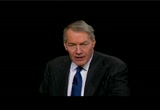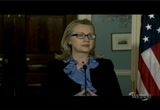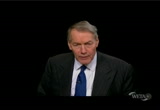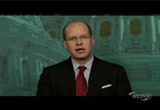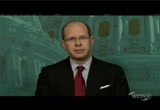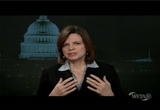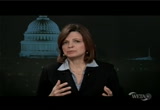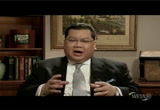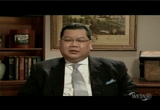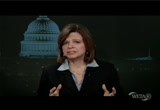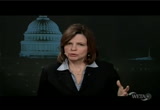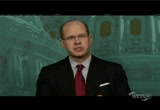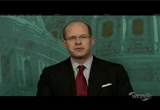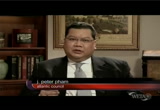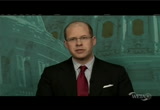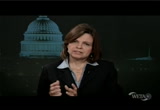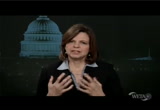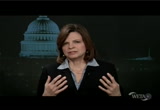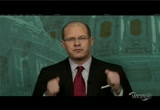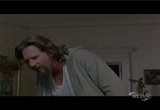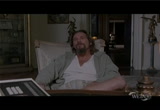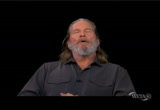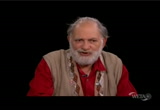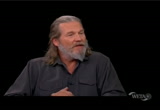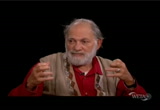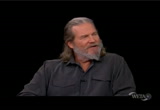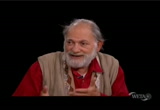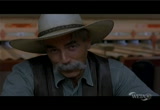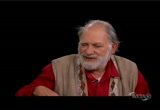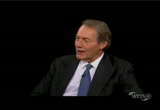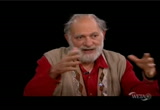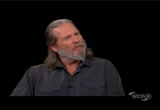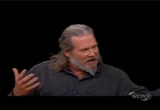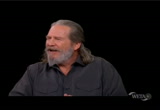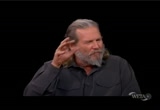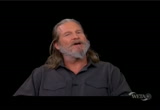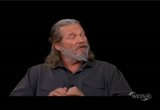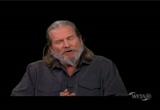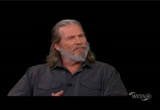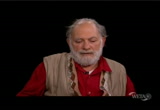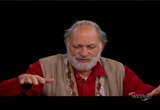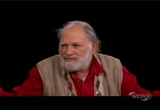tv Charlie Rose PBS January 18, 2013 12:00pm-1:00pm EST
12:00 pm
>> rose: welcome to the programment we begin this evening looking at hostage taking in algeria, and the conflict in mali. we begin with margaret brennan, state department correspondent for cbs news. >> he was very interesting to hear hillary clinton there put mali, algeria and al qaeda quickly in that same paragraph. linking those concepts. because the state department has been concerned as she has been in pushing algeria to take a more active role in trying to control al qaeda. because they have been building out what is feared to be a command and control center. within northern mali. that is to say there are weapons coming from libya,
12:01 pm
through algeria, down into mali and there is a worry that this could become another afghanistan. >> rose: and for analysis of algeria and mali we turn to max boot, jennifer cook, and peter pham. >> the ramification of what happened in algeria and the strike against the gas installation there and the hostages being taken there really opens this up and internationalizes it with a number of year mean citizens taking u.s. citizens and japanese as well. so the events of this last week, the french incursion, the islamists move south and the taking of the gas installation in algeria really puts a whole dramatic new spin on this and adds momentum to the whole problem. >> rose: we conclude this evening with jeff bridges the actor and bernie glassman, their new book is called "the dude and the zen master" >> well, one day bernie says to me, by the way, you know
12:02 pm
that in the buddhist circles the dude is considered a zen master. i said what are you talking about, man. he said oh yeah. i said come on, you know. you know, the cohen brothers never mentioned anything about you know, any kind of spirituality or zen or anything. and he says there you go, the-- . >> rose: algeria, mali, the dude and the zen master. when we continue.
12:03 pm
captioning sponsored by rose communications from our studios in new york city, this is charlie rose. rose al gerian forces launched a dramatic raid on a desert gas plant earlier today this came after militants reportedly linked to al qaeda took the facility hostage on wednesday. the charge released several hundred algerians but held dozens of foreign workers including united states citizens. there is conflicting information about the algerian raid and there is no confirmation on how many cappers and hostages were killed. the milton reportedly demanded an end to french him tear activities in mali in return for the hostages.
12:04 pm
the situation in mali is also critical. on friday last week france launched an area bombing campaign against rebels with ties to al qaedament since then a ground force has engaged in combat with rebels trying to stop their advance to mali's capital. it remains unclear what support will be offered by the united states. secretary of state hillary clinton addressed the situation earlier today in a joint press conference she had with the president of somalia. sheikh mohammed. >> now let me say the situation is very fluid. it's in a remote area of al geria near the libyan border. the security of our americans who are held hostage is our highest priority but of course we care deeply about the other algerian and foreign hostages as well. and because of the fluidity and the fact that there is a lot of planning going on, i
12:05 pm
can to the give you any further details at this time about the current situation on the ground. but i can say that more broadly what we are seeing in mali n algeria reflects the broader strategic challenge, first and foremost for the countries in north africa, and for the united states and the broader international community. >> rose: joining me from washington margaret brennan state department correspondent for cbs news. welcome. >> good to see you, charlie. >> tell me more about the attitude at the state department about alger ya, the link with mali and what might be coming. >> i think it was very interesting to hear hillary clinton there put mali, algeria and al qaeda quickly in that same paragraph. linking those concepts because the state department has been concerned as she has been in pushing algeria
12:06 pm
to take a more active role in trying to control al qaeda. because they have been building out what is feared to be a command and control center within northern mali. that is to say there are weapons coming from libya, through algeria, down into mali, and there is a worry that this could become another afghanistan that is why she was in algeria at the end of october and it is why the u.s. state department and foreign policy advisors have been very concerned about the threat. they say yes, it should be an african response. it's an african issue but the u.s. has interest at stake here. >> rose: what is the debate maybe within state, within the white house, within the defense department about american options? >> well, american options are limited by american law right now. because u.s. law pro ibt hads assisting a government or a military that came to power through a coup. and right now the malian government that we are
12:07 pm
trying to support in their efforts to control the rebels and to control the al qaeda and islamic militants in mali came to power through coup. so we can't provide them direct assistance. so u.s. law prohibits that. we're finding work arounds what that mean as secretary clinton laid out today is that by this weekend there will be military trainers in the area to train african militaries to go into mali, we'll be paying for that. we will be helping to fund the airlift to bring in a french battalion. there will be about 600 troops coming in with tanks to mali. so there are work arounds but there are restrictions that prevent the u.s. military from getting directly involved in mali. >> what can we do to support the french? >> the french have asked the united states for a number of things. the mallian government has also asked the united states for a number of things. right now the u.s. is agreeing to provide intelligence. we do have an unmanned drone
12:08 pm
that was locate odd over the incident in algeria. that's under way in that eastern part today. we, in mali are helping to airlift the french in. we're helping to fund a lot of these projects. we're also giving malaria drugs, gps, kevlar vest, helmets to african militaries to go in to intervene. so that's what we are doing on that end. and the french military can work alongside those african militaries. they don't have the same laws restricting their movement like we do here. so we're providing a lot of information to them. >> you mentioned the fact that the secretary had been to africa and had some exploratory meetings there. did they see this coming? >> well, the secretary has had africa and particularly taking on al qaeda in east africa as a clear priority for some time. this challenge of taking on al qaeda in mali has really come to the foreearlier this
12:09 pm
year, earlier in the fall. all of this really boiled up after the fall of mo mar qaddafi in libia. i know we are throwing a lot of countries in here. but it was after you saw some of the nationals who had been in libya on the payroll of mo mar qaddafi as his mercenaries lost their jobs when he fell out of power. and they came back into northern mali. and that's shortly thereafter within six months of that you saw the government fall, you saw a coup and it's really just within that past year and a half that it has come to the radar within the state department and for the secretary of state. but she was trying to push algeria to get more directly involved in controlling mali. they don't want the u.s. at the forefront of this. they don't want to commit real u.s. military troops nor can they. >> and so what does the hostage taking and killing in algeria, how does this influence choices and actions in mali? >> well, secretary of state hillary clinton said today
12:10 pm
that they are advising, you know, the u.s. citizens, businesses to really take care in terms of reviewing the security procedures. so you can say that this incident in algeria has now rationed concern about the security interest of americans and werners throughout north africa. that has changed things tremendously. but the u.s. beyond that is trying to review security as well as some of its facilities and see if they are prepared. >> there was a story today suggesting that some people in the state department, some people at defense were making the argument that mali was not in our-- was not a threat to america's national security and that therefore we should go very carefully in terms of looking at what we do. >> there has been a debate about that. there has been a debate about how real the al qaeda and the aqim threat truly is
12:11 pm
to western or u.s. interests. up until this point you hadn't really seen a qim attack western interests other than their linkage to that attack on the u.s. consul and mission in benghazi that killed the u.s. ambassador there. so within that context, aqim, the situation in mali have been some what contained. it's the potential of it becoming another launch pad for terrorism throughout the region that has people scared and pushing for more action. but that said, up until this point, aqim has been a huge fund-raiser for itself through kidnapping for ransom. they've made more than $30 million euros after kidnapping french citizens because the french will pay for the nationals to come back. up until this point, they hadn't taken an american hostage and now they have at least three. >> so they would view perhaps mali as the next afghanistan or having the possibility of being the next afghanistan before 9/11 when in fact it was a haven for al qaeda.
12:12 pm
>> there are parallels there because in some ways, you know as one u.s. official said to me half jokingly it's the world's worst neighborhood. you have islamic extrialists, you have al qaeda through aqim, you have drug traffickers up there in the north of mali. and you have just rebels who want some independence to split the country in two. so in that mix you have that worry that you can create within the chaos a command and control center. like what you saw al qaeda do through the taliban in afghanistan. so that's the fear that it can become a launch pad. >> rose: on another matter finally, when dow expect the secretary of state to testify about ben gazee-- ben gaddee? >> secretary clinton will testify on capitol hill about benghazi the 23rd. so that will be shortly after the inauguration on monday. she will speak before the senate foreign relations committee and also answer questions from the house foreign affairs committee and they will be open. the public will be able to
12:13 pm
listen that testimony from her. >> dow have a sense they are anxious to do this because they want to get out front and take the opportunity to defend those things that have grown occupy around the benghazi, the political football it became? >> it really has become a political footballment benghazi became in some ways a rorschach test for where you stand politically in washington. secretary clinton and her advisors felt it was necessary for them to wait for her to go to the hill until they had that review board that looked into the investigation in benghazi and said where they failedment because she wants this testimony to be focused on what happens next and how they respond rather than who said what-- what when which was the political football. >> is it likely to be her last appearance before a congressional committee? >> it is likely to be her last appearance because senator kerry, of course, his hearing is set for the
12:14 pm
24th, day after. so he's going to be up there oddicians for her job and he is believed to be a shoe-in in terms of confirmation. >> rose: margaret brennan, thank you so much. pleased to you have here. come back often. >> thank you. >> good to be here. our coverage of the events in algeria and mali continue with a distinguished panel of guests. joining me from washingtonpa c n foreign relationment his new book is called invisible arm armies a-- peter pharm, director of the africa center of the islamic council and jennifer cook director of the africa program at the centre for strategic and international studies. i am pleased to have them all here. max give me a sense of what you know about where we are at this moment? >> i think charlie we are in a very early stages of what could be a very protracted insurgency campaign. one of the things that i did in the course of doing the
12:15 pm
research for my new book is a calculated the average length of an insurgency since 1945. and the average length is nearly 10 years. the french just got in last week and so we have a long way to run. i think what we have essentially seen is that the french have been able to blunt the advice of the islamist insurgents who have taken control of northern mali, the french first use their strikes and now they have some troops on the ground actually directly battling the rebels. and there's no question that the french can stop the advancement but to actually roll back the insurgents and to gain control of the territory which they currently control is going to be a very difficult protracted undertaking which will require more than the few hundred troops that the french have currently dispatched to mali. they're going to need a lot of help including from local mali forces and west african peacekeeping forces. now unfortunately, you know, the mallian forces have shown themselves to be utterly decrepit, corrupt,
12:16 pm
incompetent and the west kavr african peacekeeping forces are probably to the going to be a lot better. so they are going to need a lot of buttress, and not just from french. i think it in the interest of the united states, britain and other western powers to aid these forces on the ground, les these islamist insurgents gain control of mali and turn it into a if you base for international terrorism. >> rose: a kind of new afghanistan. >> that's the danger, that is certainly what they would like to see and in fact, guess what, we're seeing veterans of the afghan war who are popping up. these are transnational groups such as al qaeda and the islamic magazinereb and others which might not only in mali we're seeing them now fighting in algeria. this is a transnational problem and it will require a transfat response. >> rose: jennifer cook help me understand what is at stake here, what is the national interest on the part of the united states but generally, what is the threat to africa if mali is
12:17 pm
not being able-- if they are not able to thwart an islamist take over. >> well, al qaeda and the islamic mugreb and other islamist groups up in the north of mali for some time have been conducting hostage for ransom operations, drug trafficking, cigarette smuggling and occasional attacks on regional targets outside mali's borders. what has happened with the collapse of the state in the capital of mali and the fusion of all these groups into a loose collection and takeover of the north they now control the three big key cities in the north of mali, the fear is that they fortify themselves in those positions. they entrench themselves, they become a magnet and a training ground and a safe haven for terrorists and criminal networks from across africa and even as
12:18 pm
mr. boot said from beyond. and that from that position they can launch attacks against europe, against bigger targets within africa. and possibly in some-- in some eventuality, against the u.s. now the-- the ramifications of what happened in algeria and the strike against the gas installation there and the hostages being taken there really opens this up and internationalizes it with a number of european citizens taking u.s. citizens and japanese as well. so the events of this last week, the french incursion, the islamists move south and the taking of the gas installation in algeria really puts a whole dramatic new spin on this and adds momentum to the wol problem. >> rose: now what is the connection with the algerian hostage taking? >> well, the thought is that, and everything's a bit unclear at this moment, but they have said that it is in
12:19 pm
retaliation for the algerians allowing france to use their airspace in the mali intervention. and the thought is that one of the leaders of a splinter group of aqim, has ordered his followers to conduct this hostage taking. again a lot of this is fairly unclear. i think they are happening very quickly there. it is not clear how direct the orders are. how direct the command and control within aqim and these various groups is. but that is what they are saying, that this is a retaliation for the french intervention. they want the french out and against algeria for allowing the french to use their airspace. >> peter, how did we get here? >> we got here because for a number of years we have been ignoring the vast ungoverned spaces of the sahara, ignoring the fact that al qaeda and islamic magreb, engaging in criminal
12:20 pm
activities and putting a way a great deal of money, millions of dollars actually from kidnapping for ransom, from the drug trade and contraband and what we had was a perfect storm when the overthrow of the qaddafi regime freed up experienced fighters, mercenaries who were available for other conflicts, weapons flowed and they had the al qaeda and islamic magreb and other groups had the money, the wherewithal and the desire to sweep those things up and then the mallian state was far more brittle and weak than we had given it credence to be. and as a result t all came together and in a space of days last spring in march mali's government was overthrown and the islamists seized control of an area roughly the size of texas. >> if the french had not come in would -- >> the french coming in certainly one needed to contain this threat. the problem was when the french came in they didn't come in as he was saying
12:21 pm
sufficient force to actually turn back these islamist insurgents. they managed to block them in the town of koma in the middle area of mali but all they did was swing to the right and seize a town which is only about 200 miles north of the capital. it is now a game, we've seen this before in other insurgency situations of whack the mole. >> rose: where will the support for those who overthrew the government come from? >> well, they have a lot of funds of their own at this point. this is an amalgamation of various groups. the first group to leave the takeover in northern mali was actually a secular twarek independence group, the mnla. they were joined by another group but with an orientation, an sardin and then by al qaeda and islamic
12:22 pm
magreb and the movement for jihad in west african so they melded noingt a partnership to control the north. the secular twareg where quickly sidelined in that and what you now have is this mix of groups. they're not uniformed, they're not monolithic, they are often splinters among them and divisions and personal competition among them. and a competition for ascendancy among them. and with the algeria strike is perhaps setting himself up for that. they are well-funded already. but they may have networks in the rest of africa, there are some allegations of connections with bokaharam in northern nigeria. perhaps potential supporters in moratani, any ger, senegal, and even from further a field, again as mr. boot said, you do see fighters now coming from further a field where they are getting pushed out of
12:23 pm
other places and coming into this area of least resistance. >> and what will it take to stop them? anybody? >> first you have to have security and second you have to have legitimacy. and both of those are soarly lacking in the case of mali. now in terms of security, you know the french have sent a few hundred troops against thousands of insurgents and it was just pointed out by peter they are able to swing around the french, they are able to melt away from the french forces this is truly in keeping with kind of gor ba-- gorilla warfare where mas say tung says the enemy advance we retreat. the enemy tires, we advance t that is exactly the thinking of these insurgents so it will take more troops, more security personnel to have some kind of security but crucially, and this is a really important factor, charlie and i can't emphasize this enough, you've got to have legitimacy. it's not enough just to have men with guns. you have to have the people acquiescing in what the men with guns are trying to do and right now the regime has
12:24 pm
no legitimacy because last year it was overthrown. the democratic elected president of mali was overthrown by troops who had been trained by american trainers, now there is an interim government. i mean if you can look at the government of mali, i mean it's so bad it makes the government in kabul look good by comparison. i mean this is a very dysfunctional regime that has a hard time winning the support of its people. so along with the security, you have to enhance the legitimacy of the regime so that people in the north will be able to turn away even if there is a security offensive into the north. even if the french are able to make gains in the north they're to the going to win the support of the people unless they're championing some kind of government that those people respect and right now understandably they have zero respect for the government, which exacerbated by the fact that the people in the north are twareg and you have black africans there is a lot of tribal ethnic, various other divisions. so you have to have an international push to create a more inclusive government
12:25 pm
that can win the support of the people. and something else needs to be done even before that, or as part of that process is the french and the mallian government need to try to win over some of the tribes and clans in the region, much in the way that the u.s. marines won over some of the tribes in an bar province in iraq you need that process going on along with the kind of formal state building. this is a huge, huge challenge. >> can they do that? we have heard this and seen this movie before. >> yes. >> and i agree fully endorse and i endorse what max has just said. i think what we need to do right now is take a moment, we need to buy some time to establish that legitimacy. one way, this will be troxal but one way i suggest that we might be able to buy some time is although the islamists number probably in the hundreds or maybe low thousands in the north, they're only a handful of key leaders who are stand as linchpins. they intersection of the criminality, the terrorism, and the tribal structures.
12:26 pm
one has to seriously consider the possibility of knocking out, eradicating some of these linchpins that will give a bit of disarray, and perhaps some time to build the legitimacy needed to really carry out a true counterinsurgency in the north. >> i wanted to follow up on what peter just said because the u.s. has really taken a step back in mali last year. understandably perhaps since the coup because we don't want to seen to be supporting an il legitimate government. we have taken a step back. we have stopped training the mallian armed forces. we even stopped surveillance over mali because we are afraid some of our aircraft which are pilotted by contractors might be shot down and the pilots might fall into rebel hands but we have to step it up. change those policies. we have to have aircraft overhead so we can get surveillance as peter suggested. we might want to send armed drones like the reapers that can target insurgent leadership. we want to restart our program to train the mallian army. there is a lot we can do. we don't need to send boots
12:27 pm
on the ground but there is a lot we can do to assist the french in what we are trying to do. >> dow agree with that, the united states has to give serious consideration in assisting the french but not putting american boots on the ground? >> well, it has. and look, we are prohibited by law from dealing with the mallian army right now which in any rate is not going to be the solution to this. they're in disarray as we said. there is a force, now the french have promised up to 2500 troops. they've got 1400 on the ground right now. the west african states have pledged 3300 who are scrambling to get themselves organized. they may not have the capabilities to do this alone and it may be that the french have to remain there. the chaddians who have a very competent, capable army which is used to this des zrts terrain knows the players, knows the dynamics, they've pledged 2,000. the strike against algeria
12:28 pm
may prompt the algerians to get involved and they will be pivotal in this for their intelligence, their military capabilities and political connections with some of these. all along the u.s. has rightfully insisted on working on the political issue, who is the interlock eter, even if you are successful militarily who dow turn this vast region over that has never been governed effectively, actually. and they pledged robust support to the west african troops and logistics and communications, they've put options on the table in terms of refueling, surveillance drones, airlift for the french. and certainly hud had the chaddians get involved they'll be there as well. they don't want to get suck mood this directly militarily. they don't want to internationalize this, make the u.s. the big target and the big heavyweight here. and i think that's appropriate. but i think they will be and they should provide robust support to all the partners
12:29 pm
who are engaged in this. >> you're a director of the africa program at the centre for strategic and international studies, where does this put news the african continent. we have yemen, mali -- >> well, this is the big crisis right now. and there are several. i mean it's ironic that somalia is actually on something of an upturn right now and is looking, there are some opportunities there. whereas mali which we always held as this stable paragon of democracy is rapidly going down the tubes. we have got conflict and terrible humanitarian crisis in eastern congo. we have northern nigeria, this though is the one that has the real international repercussions that the u.s., the region, the regional west africans are extremely concerned about this. and the europeans. >> rose: i thank you for taking time to come talk with us about this. >> thanks so much, charlie,
12:30 pm
pleasure. >> just to put this into the context not just of africa but of the broader fight against al qaeda, because president obama has often said that al qaeda is on its way to defeat and it's probably true that the central al qaeda organization which was one headed by osama bin laden and headquartered in pakistan probably matter a lot less now than a few years ago but what you have seen is that as we pit al qaeda in the core area in afghanistan and pakistan it splintered outward and moved outward. and now are you seeing, you know, like a virus trying to find a body in which it can find a weak host. it's moving out and becoming more powerful in places like yemen, somalia, libya, now mali. so it's moving further and further a field and there are so many weak states because this is where terrorists take root. they take root in failed states there are so many failed states in africa it is not just mali there are a lot of other places and now increasingly in north africa too because of the upheavals that we've seen in the last several years. there's very weak states
12:31 pm
that cannot resist the incursions of these islamist terrorist groups so we are actually seeing an al qaeda which is morphing and changing an remains very dangerous i think but the danger is taking different forms from what it was when it was more centrally run and tightly controlled out of pakistan. that's what we are seeing in northern mali. >> peter, thank you very much. max, thank you very much. >> okay, sir, you're a lebboutski, i'm a lebboutski, that's terrific, but i'm very busy as i imagine you are. what i can do for you, sir. >> well, sir, it's-- this rug i have, it really tied the room together. >> you told brad on the phone, he told me. where do i fit? >> well, they were looking for you, these two guys. >> i will say it again. you told brad on the phone,
12:32 pm
he told me. i know what had, yes, yes. >> oh, so you know that they were trying to piss on your rug. >> did i urinate on your rug. >> i mean did you personally come and pee on my rug. >> hello do you speak english. i will ask you again, did i urinate on your rug. >> no, like i said-- peed on my rug. >> i want to understand this ef rhyme tie rug is-- in this fair city i have to compensate the person. >> come on, man, i'm in the trying to scam anybody here. you know, i am just -- >> you're just looking for a handout like every other-- are you employed mr. lebowski. >> wait, let me explain something to you. i am not mr. lebouwski. >> i am mr. lebowski, i'm the dude, sos that what you call me, or that is his dudeness or duder or, you know,el dud erino if you are
12:33 pm
not not brevity thing. >> are you employed, sir. >> employed? >> you don't go out looking for a job dressed like that, dow, on a weekday th iis >> is this some-- what day this? >> rose: that was jeff bridges as the dude in the could enbrothers 1998 movie the big will boughski. for years many have admired his wisdom. -- later become the zen peacemakers on an international order of social activists. bridges and glassman were close friends, their conversations are about some of life's best subject its, love, happiness, creativity and e crsouthe mrsovies. they have now collaborated on a new book called the dude and the zen master. i am pleased to have jeff bridges back an bernie glassman here at this table for the first time. so how does this come about? >> i went to a dinner that was honoring bernie and the
12:34 pm
guy who wrote be here now. >> rose: so that is when the friendship started. >> at that dinner we got into a good conversations and then i think if i remember right i did a workshop and you came to the workshop. >> yeah. >> and then after that we hung a little and we both liked to smoke cigarses. so we hung some more, smoked cigars and started talking. and found that not only great actor but i really enjoyed hanging with him and rapping. that is, we talked about life in a good way, you know. and he was a guy -- dhirb met a lot of actors, here was a guy, jeff bridges who really was interest in a lot of serious stuff. and hi been working in that world. >> rose: how did you go from there to a book? >> well, one day bernie says to me, by the way, you know that in the buddhist circles, the dude is considered a zen master. and i said what are you talking about, man. he said oh yeah.
12:35 pm
i said come on, you know. you know, the coen brothers never mentioned anything about you know, any kind of spirituality or zen or anything. and he says there you go, the coen brothers-- i said oh, come on, meaning the co-ons are from japan s that a japanese word. >> yeah, co-on is a japanese word, it is also a word that comes out of the whole -- >> that is what you were saying. >> but those are, it's one way of studying zen is, there is a whole system of working with these co-ons which are questions or statements that can't be answered intellectually. the first attempt is always to answer it intellectually. it's always our first attempt on anything. but in a co-on study you have to answer them experiencely, you have to present it as a living
12:36 pm
example of your life. >> rose: right. >> what is the sound of a one happen clapping is a famous one. >> rose: so here you go from a friendship, to a continuation of a conversation. >> and then he brings this thing up and he says the lebo whereski is riddled with co-on for modern time. i said what do you mean, he said an example would be the dude abides. -- has come to light, shut the [bleep] up, there is just a whole slew of them. and he says what do you think about writing a book about this. i said oh, well, that could be kind of cool thing. it would be a chance to hang out and go up to montana and spend a few days. get my dear friend alan coz louski to take some of these pictures and record the thing. and so that is what we did. >> rose: and stayed for how long, about a week. >> about five days or so. >> rose: an just talked and recorded. >> and just talked and he recorded it, yeah. >> but these five days came on the back of about 10
12:37 pm
years of conversations. >> yeah. >> rose: . >> and a lot of cigars being smoked and talked about. >> rose: the dedication is to all the hungry spirits. who are the hungry spirits? >> for me, maybe i shoul should-- that's sort of changed my life. hi been-- hi started studying zen in '58, so over 50 years. hi become a teacher, maybe by 1970. in '76 i had an experience, i was working for mcdonald douglas in california in the space industry. i was going to work in a carpool. and i had an experience of what i call the hungry spirits of the universe. thirsting and being hungry for things, power, money, fame, food, all kinds of thirsts. and i had this experience that those hungry spirits
12:38 pm
were nothing but me. i was all of these this is what we call the oneness of life. and immediately what came up is this, i need to work on feeding, trying to feed all of that. so i changed my-- . >> rose: feed all the hungry spirits. >> yeah. so i changed the venue of my work which had been a zen center to society. so that was a big shift, instead of working strictly for those who were coming to a zen center to learn about zen, all that kind of stuff, now i started work in the world of business and the world of social action and the world of politics, you know, in all of society. the venue shifted to the world. >> rose: let's talk about some of the concepts starting with the dude abides. >> that to me kind of goes in tandem with another co-on in the book which is the dude is not in. >> rose: yes. we'll get to that one but go ahead. >> but they kind of go together in my mind. and the dude abides work where does he abide.
12:39 pm
he abide those where. he's not in. so therefore he abides everywhere. >> rose: right. that's it. >> that's my hit on it, how about you, person. >> yeah, so let me unpack it maybe for-- because many of us, right, all of us i should say, abide somewhere. we abide in the liberal world, as a conservative world, the tea party world, or the-- i do, i work in the middle east in the plain world or the-- we abide in a world which means that we shut everything else out. the dude abides or abiding nowhere or not being in means that you are open to anything that's coming in. so even though you might still be working in those fields, now are you open to all the upons. and not become stuck to the opinions of the place you are abiding. >> hey, man. >> how do you do, dude.
12:40 pm
>> i wondered if i would see you again. >> how have things been going. >> you know, strikes and gutters, ups and downs. >> i got you. >> yeah. >> thanks, gary, take care, man, got to get back. >> sure, take it easy, dude. >> oh yeah. >> i know that you will. >> yeah, well, the dude abides. >> the dude abides. i don't know about you, but i take comfort in that. it's good knowing he's out there, the dude. taking it easy for all of us sinners. >> sam is so good, man. >> rose: one of the notions akin to the dude abides is
12:41 pm
the philosophic idea of suffering. >> if the dude is abiding, in terms of zen, suffering never goes away. we suffer because we have things we don't want or we don't have things we want. whatever the situation. since it's going to change, the things that we want, we want to hold on to them. and then things change so there is that suffering. in the dude abides, if it's really abiding then there's no attachment to anything and you don't feel that suffering. that is, it's still there, but it's in that attachment that causes the breakdowns to grieve, the suffering can still cause pain. pain will still be there. sorrow will still be there. all those emotions are
12:42 pm
there. but if you are abiding, you know something sad comes up and you just cry, man. and you know, so all of that is still there. but not the psychological pain that we inflict in ourselves of saying why, why didn't it happen the way i expected it to happen. here's-- we don't call them attachments but here is what i think i know and it's not happening the way i know. why is that going on. and we drive ourselves crazy. so i would say that the release of suffering as most people think about it is to just a biz, be with it. >> back to the movie, the first clip we saw about the ruch, the rug connected the room. >> yeah. >> was's the concept out of that? >> yeah. >> help me here, that's kind of-- one of the inner questionses. >> the rug tied the room together. >> yeah.
12:43 pm
so i am a zen teacher and the zen peace make certificate-- so i have successes that are teaching zens cath rick breasts, rabbies, sheikhs but in dudism, the word kbuda means to awaken. and it is awakened to oneness of life, the interconnectedness of life. and so a lot of the training or the practicing is to try to have people experience what that interconnectedness is all about. nowadays our conscience has evolved so everybody knows we're all interconnected but they may not have experienced it. well, the rug that ties the room together, what is that rug? it's pinning down in the zen terms and that's why i like willbowski, coy use thee metaphors that are daily metaphors in the buddha's language, what is that interconnectedness of life.
12:44 pm
>> tis bk oo called the dude and the zen master.k what do u help people will comeaway with. >> you know, ask you that question, i'm thinking the impetus to do the book, really didn't come out of like-- i want to leave a message it was just hanging with my buddy, really. and i guess maybe as i say that maybe some of the secondary stuff was to turn folks on to bernie's work, zen peacemakers and also the stuff that i'm involved with hunger, get hungry and that kind of stuff. and you know, maybe turn folks on to bernie. that's kind of-- because i, you know i got off on what he is all about. >> rose: and have been doing that for a while. >> yeah. >> rose: but let me apply this to as well the idea, an help me bernie, to acting. how is all this applicable. >> yeah. >> rose: in terms of how you approach acting?
12:45 pm
>> yeah. well, a lot of the things that later on, that is kind of a zennish type approach. had those things before i really got into it. >> knew it was zen. and a lot of that, you know s from my father, how he fought me when i was a kid, you know, working doing the part i was eight years old, he would talk about, you know, learning your lines and then being able to be kind of facile with if and actually, create some kind of emptiness or openness in yourself. so when the person says a line you're not waiting for his lips to stop before you say your line. you're letting what he is saying kind of affect you. and that determines how you go. and so-- respond. and so i find that all these years i kind of approach it the same way. i learn my lines. i figure out how i think it would be an interesting way to do it. i think maybe five or six
12:46 pm
different ways to go. and then i show up for work and i do my best to let all that stuff drop way and see what my bigger self, you know, the other actors, the director of the weather, how all that informs me, just says that's-- sometimes i will say a prayer, you know, take me, you know, what are you going to do with me, man, you know. >> but there is also a sense that if it's not exactly the way you might have imagined it, you may do something to break the moment. >> oh, i say yes, yeah. occasionally i'll get, i'll find bernie was talking about this suffering over suffering, you know, so sometimes when you think about you have gee, i really liked the way i was preparing for that thing in my room and now the direct certificate really not there and i'm kind of attached, man. i can feel it. so i will have this impulse
12:47 pm
to do something that kind of breaks that attachment, you know, where who i have impulse right now to show you i would go over there. i want to kiss you and make up your hair and go over and tweak your nipples or i grow on the ground and just scream or you know, do something that just kind of breaks the thing. and that helps. >> yeah. >> that helps. one of the things that just recently finished a film with kevin bacon without i really enjoyed working with a lot. and there is a certain amount of -- >> the character was-- he is a very weird plot, funny, it's a comedy, you know, we play ryan reynolds and i play two dead cops who are hunting dead people who are prevend-- pretending to be alive. but you think that you have been doing this so long that you would kind of get over anxiety about performing. but you know, i don't. there is a certain anxiety i have right here talking with
12:48 pm
you because we are doing something that you know i wanted to come out. >> and it's not scripted wants and it's not scripted. >> you don't know where it is going. so kevin, you never know. why should there be tensions but i can just notice it in myself, kind of a little tiny, so we're doing a scene it was a particularly big scene but one of the first scenes i was doing with kevin. and he looks at me and looks at the other ackers and he says remember everything depends on this. which is totally ridiculous. you know, and that kind of like lightens it up. but at the same time there has been a little english on that, that yeah, he is right. everything does depend on just this moment. whether we do it right now, that's what is significant. were you a friend of -- >> no i did the training kind of when it first came out, before it had any negative pr. as kind of some people kind
12:49 pm
of have negative thoughts about it. and then i got involved maybe a couple years after i did the training i went to something, a forum that he had called the hunger project. and he was fascinating. all about ending world hunger. and he presented all the facts about hunger how terrible and prevalent it is in our world and how it is not a matter of not having enough food or money or not even not knowing how, we know how, it has been about creating the political willment and of course the poll figureses are supposed to represent us so what doe does-- what are you willing to do now that you know what the facts are. are you just going to numb it, go back to sleep or dow want to do something and not just something, you know, a guess sure that will scratch your guilt itch but something that kind of fits in with your life that you
12:50 pm
can sustain, you know,. >> rose: i kind of commitment. >> yeah, a commitment that works naturally with what you have naturally do. and so i helped create an organization called the end hunger network all about working with the media. saying the media must have some role in ending hunger. >> you went to political conventions too, didn't new. >> since then that was-- we are talking maybe 30 years ago, and about maybe 15 years ago i kind of shift from world hung tore hunger into area, some you are skaeft nets had holes in it and people were, you know, huger was really a terrible thing. and so i shifted to hunger hearing, about two years ago i met this guy, billy shore. >> has he ever done a sho, so great. >> really committed. >> yeah. >> used to work with gary hart. >> yes, right, and he had a
12:51 pm
campaign, has a campaign called no kid hungry that i am the national spokesperson for. and it's all about going from state to state working with government never-- governors to make sure that all 9 kids in their state have food, you know. and hunger is basically a poverty issue. that's what really causes it, you know. but childhood hunger that's something that is not as complex as poverty, it's a good kind of handle to grab on to. >> at the same time malnutrition can have per sways-- pervasive affects on health and development. >> of course, and our national security, how we are going to compete. like you said, i went to both conventions, the republican convention. and the democrat convention and i'm happy to say that the chairman of both the democratic governors and the republican governors are both of them-- they're on
12:52 pm
board, governor mcdonald from virginia. >> and o'malley-- yeah, they're both hon it. so they wanted -- >> republican and democrat so i wanted to go to both conventions and you know, celebrate the guys who are on board and trying to gets more guys on board to take advantage of this over a billion dollars of federal funding that is available to states, many states an even aware of it, to help feed the kids in their state. >> what is the power of zen? >> the power of zen, can i do it as an example? >> yeah. >> i'm bernie, and i don't even have to think about it, bernie knows that without knowing, it's not a question of knowing. the fingers, the hands, the
12:53 pm
head it's all connected. all one thing. imagine that this hand had some kind of illness and thought it was separate. and gave a name, it's joe, this hand same thing, it's mary, now joe gets a gash, blood is pouring out. and mary looks at joe and says oh, there is blood pouring out. i should do something about it. but maybe, maybe not, maybe i will get sued. i done know thinking about medical stuff. i never trained. in fact i'm wearing a if you dress. i might get all bloody so mary walks away, joe bleeds to death, bernie dies, mary dies. imagine you have an experience in whichnery an joe disappear, it's all one thing, it's all about bernie. the hand is gashed. now this hand just does whatever it can. does the best it can to do something. it doesn't walk away. it takes care.
12:54 pm
now if this hunger, the hands don't fight over who is going to get the merit of feeding bernie who is hungry, now whichever hand is closer, picks up food and sees it, takes care. so the power of zen, you just now project that further. i made a homeless person in the street. it's not me. so i cross the street. i don't want to see that you know i don't want to see that kind of suffering or whatever. if that becomes me, if the experience of zen, if you experience that oneness, now i can't cross the street. i say hello, i say how are you. i do whatever. i do the best i can, prab giving money but that's not important. what's the most important thing. to give love, to love that. so that can keep going and going and now that's the power of zen. imagine if we as a country
12:55 pm
felt that way. we would be taking care of everything without, to the best we can. doesn't mean we can solve the things. but we would be doing the best we can, instead of denying it. arguing about it. keeping to our own positions, you know. that's the power of zen that interconnectedness it is the rug that ties the room together. s this's the power. >> i think we now got it we have it. the book is called the dude. and the zen master. the dude is with it. the zen master is with us. bernie glassman and jeff bridges, thank you my friend. >> just be hacking with you. -- just hanging with you.
12:56 pm
135 Views
IN COLLECTIONS
WETA (PBS) Television Archive
Television Archive  Television Archive News Search Service
Television Archive News Search Service 
Uploaded by TV Archive on

 Live Music Archive
Live Music Archive Librivox Free Audio
Librivox Free Audio Metropolitan Museum
Metropolitan Museum Cleveland Museum of Art
Cleveland Museum of Art Internet Arcade
Internet Arcade Console Living Room
Console Living Room Books to Borrow
Books to Borrow Open Library
Open Library TV News
TV News Understanding 9/11
Understanding 9/11



